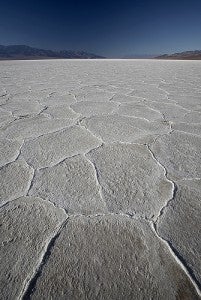Note to Congress: Pitting fish against farms won’t solve California’s drought
A bill to supposedly address California’s devastating drought, authored by Rep. David Valadao, cleared the House of Representatives today.
Unfortunately, this proposal – dubiously named the Western Water and American Food Security Act of 2015 – is yet another attempt to move more water through California’s vast Central Valley Project at a time when we can least afford it and at the expense of many water users.
Among other problems, the bill would permanently undermine science-based protections and regulatory assurances for at-risk species and ecosystems that are essential in providing reliable food, safe drinking water, and jobs to millions of Americans.
The proposed tradeoffs here are nothing new. Similar bills – H.R. 3964 and 5781 in 2014, both opposed by the White House and the State of California – also pitted fish against farms.
It’s time we move away from finger pointing and start finding collaborative solutions to the drought that increase the resiliency of our freshwater ecosystems while supporting agricultural communities in California’s Central Valley.
Getting groundwater right
A key opportunity in front of us is to accelerate implementation of California’s 2014 Sustainable Groundwater Management Act (SGMA).
Recent findings from a UC Davis study indicate that the economic impacts of the drought have not reached the level of severity initially expected this year – largely because farmers and other industries have relied more heavily on groundwater reserves. As a result, many groundwater basins are now critically overdrafted.
Despite the mandate from SGMA to achieve sustainable management, the law’s deadlines don’t come close to representing the urgency of the present situation (the last compliance deadlines do not hit until 2042!). Taking the right steps now to manage our groundwater more effectively can have huge benefit to our farms, communities and ecosystems.
Improving markets
In particular, water markets have great potential to lessen drought impacts. Unfortunately, significant inefficiencies in the transfer approval process – coupled with limited data on existing water diversions and trades in the state — constrict market function. Policies to resolve these issues could help ensure water is transferred from lower value to higher value uses when it is needed most – and without putting more pressure on groundwater resources.
 While improving market efficiency is important for securing reliable supplies for farms and cities, it is also important to guarantee water allocations to rural communities and the environment. A well regulated, transparent and robust market can help ensure supplies are available to all key water users, including those with historically less access to transfers.
While improving market efficiency is important for securing reliable supplies for farms and cities, it is also important to guarantee water allocations to rural communities and the environment. A well regulated, transparent and robust market can help ensure supplies are available to all key water users, including those with historically less access to transfers.
Creating incentives
In addition, designing effective incentives for groundwater management, such as the tiered pricing structures used by water agencies across the state, can also generate more efficient use of water resources. UC Riverside professor Kenneth Baerenklau wrote how tiered rates can be highly successful at (legally!) promoting conservation and funding critical water projects.
Everyone in California and in Washington, D.C., will have to come together to make these solutions a reality. That won’t be easy. But a resilient, lasting water supply is better than the misguided bill currently making its way through Congress.












